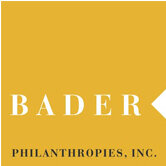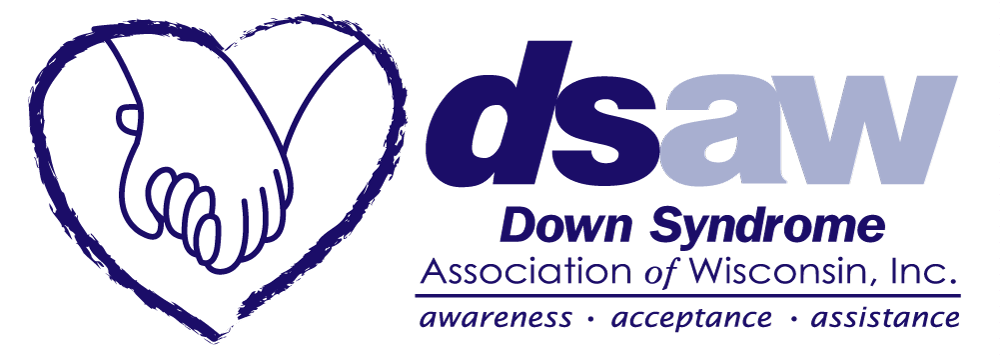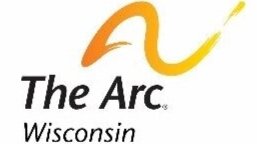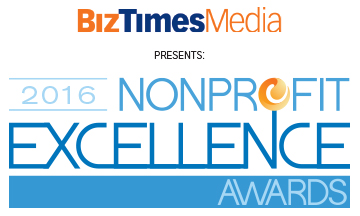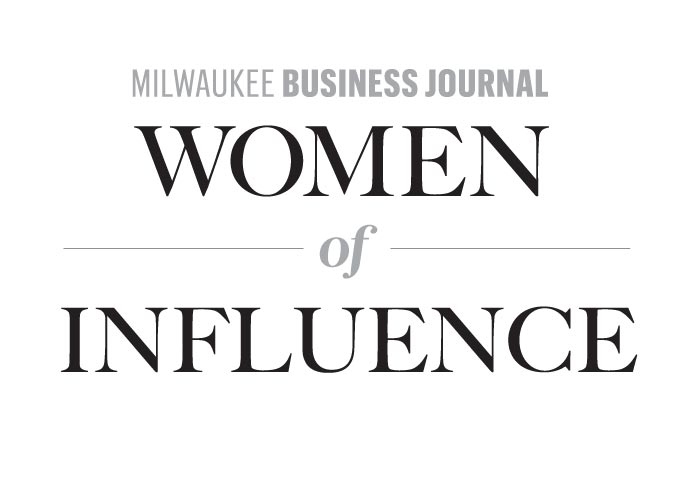Aging Services
Thanks to support from Bader Philanthropies and many community partners, DSAW is expanding programs in order to better serve aging individuals with Down syndrome and their families. We have support opportunities for loved ones and caregivers, a number of education opportunities, resources, and more. If you have any questions about this program, please contact Mary.
To stay up to date on all that we have to offer, click the button below to join our email list.
Aging & Down Syndrome Caregiver Support Group
DSAW is partnering with the Alzheimer's Association to host a monthly support group for people who provide care for aging individuals with Down syndrome. Each support group will provide emotional support and experience sharing as well as an educational component. There will be a focus on Alzheimer's and dementia due to the prevalence of those diseases in the Down syndrome community. All caregivers to aging individuals with IDD are welcome to join this program.
HOW TO JOIN US
We will meet via Zoom in order to include caregivers across the state! If you have concerns about participating virtually, please email mgaffron@dsaw.org to inquire about other forms of support.
Monthly on the third Wednesday from 5-6 PM.
TO SIGN UP
Please sign up using our registration form linked below. Check that you are interested in the Aging & Down Syndrome Caregiver Support Group at the bottom of the form. A confirmation of your registration and a Zoom link will be emailed to you.
Having issues navigating the form? Email Mary to receive the link.
Down Syndrome & Alzheimer's Disease Support Group
This is a Facebook group for families and caregivers of individuals with Down syndrome and Alzheimer's/Dementia. Join and post your questions, comments, and concerns. The group is moderated by staff from the Down Syndrome Association of Wisconsin, but we hope that the community members can be the first source of support.
Education
Want to learn more about aging in people with Down syndrome? Curious about the relationship between Down syndrome and Alzheimer’s disease, its common over-diagnosis, and ways that we could potentially improve cognition in older adults with Down syndrome? We offer several means to learn about these topics!
PROVIDER TRAININGS
Whether you are staff at a nursing home, day program center, resource center, or another nonprofit, we offer provider trainings on Down syndrome and aging. Trained DSAW staff will come to your workplace to share about the common links between Down syndrome and Alzheimer’s in addition to misconceptions, symptoms to look for, and more! Email Mary at mgaffron@dsaw.org to schedule a training.
SPEAKER SERIES
DSAW works with national leaders in the Down syndrome/aging field to coordinate a Speaker Series related to Down syndrome and aging/Alzheimer’s disease. Join us at one of our upcoming conferences or seminars about this important topic!
WEBINARS
We have a library of educational webinars presented by professionals in the field of aging, disability, and dementia. Topics include an introduction to dementia, the latest research in Down syndrome and Alzheimer’s, pseudo-dementias in people with Down syndrome, and more. Watch recordings of these webinars from the comfort of your own home by clicking the button below!
Aging Resources
Brought to you by collaboration from the following partners:
Alzheimer’s Disease/Dementia
10 Warning Signs for People with I/DD: These resources include a general overview of the 10 Warning Signs of Dementia for people with I/DD.
Alzheimer's Association: Works on a global, national, and local level to provide care and support for all those affected by Alzheimer’s and other dementias
Alzheimer's Association, Online Community Resource Finder: Providing housing, medical and community resources for caregivers of someone with Alzheimer's and dementia
Alzheimer's Disease International: Global information related to Alzheimer's, including a range of publications
Alzheimer's Foundation of America: Unites more than 2,600 member organizations nationwide in the goal of providing optimal care and services to individuals living with dementia and to their families and caregivers
The Arc Wisconsin Dementia Resource Guide: This guide includes practical resources around diagnosing and living with dementia for people with I/DD and families.
Book: Alzheimer’s Disease and Dementia in Down Syndrome and Intellectual Disabilities. Prasher, V. P. Radcliffe Publishing. (2005)
National Down Syndrome Society Alzheimer's Disease & Down Syndrome: NDSS's informational page and resources
Video: Dementia and People with Intellectual Disabilities: Created by the New York State Developmental Disabilities Planning Council
WAI Dementia Friendly Toolkit: UW- Madison School of Nursing Center for Aging Research & Educationdeveloped training materials to build communication and advocacy skills to respectfully engage people living with dementia
Wisconsin Alzheimer's Institute Memory Clinics: These WAI-Affiliated clinics offer screenings and comprehensive evaluation for early diagnosis
All Wisconsin Memory Cafes: A directory of all memory cafes in Wisconsin
Mind and Memory Matters Project: Providing support around the state and educating families/professional caregivers on the connection between Alzheimer's and Down syndrome
Caregiving
Atlas of Caregiving: Atlas CareMaps help you better understand and strengthen your care ecosystem
Caregiver Action Network: The Caregiver Action Network (CAN) is the nation’s leading family caregiver organization and offers practical tips for caregivers.
Memory Care Activities - Stimulating Activities for Alzheimer’s Patients: This website outlines the best ways to help care for someone with dementia or Alzheimer's Disease
Respite Care Association of Wisconsin: How to Hire a Respite Care Worker and/or Provider Training
Talking About Dementia: A guide for families, caregivers, and adults with intellectual disabilities: A book offering guidance about how to talk to your loved one about dementia
Fact Sheets
How You Can Help Your Family Member Take Charge of Their Health: Fact sheet designed for family members of a loved one with Down syndrome
Dementia and I/DD: How You Can Help Support People and Their Families: Fact sheet designed for disability professionals
Taking Charge of Your Health Care: Fact sheet designed for self advocates
Future Planning
The Arc Center for Future Planning: This video gallery provides an overview on how others have planned
Future Planning Resources: The Arc Wisconsin provides a directory of resources regarding future planning
Grief and Loss
Dealing with Changes, Grief, & Loss: This video addresses effective strategies for people with disabilities to deal with changes, grief, and loss
Guardianship Information
Supported Decision-Making in Wisconsin: Wisconsin passed a supported decision-making law in 2018. Go to this link for helpful resources to understand alternatives to guardianship and the legal supported decision-making form.
Supported Decision-Making Toolkit and Guide: When people have difficulty making decisions, including around their healthcare, it is important for them to still have a voice and feel in control. Supported decision-making is an important option to implement as an alternative to or in coordiantion with guardianship.
Wisconsin Guardianship of Adults Handbook: Complete guide to guardianship in Wisconsin
Wisconsin Guardianship Support Center: Provides information and assistance on issues related to guardianship, protective placement, advance directives, and more
Guidebooks
Aging and Down Syndrome: A Health and Well-Being Guidebook: A guideline for living with Down syndrome and Alzheimer's from the National Down Syndrome Society
Alzheimer’s Disease and Down Syndrome: A practical guidebook for caregivers
Dementia Resource Guide Book: For individuals with developmental disabilities and their caregivers
Health and Wellness
Alzheimer's and Dementia Alliance of Wisconsin: Local, professional help to those caring for and living with Alzheimer's and dementia.
Book: Mental Wellness in Adults with Down Syndrome. McGuire, D. and Chicoine, B. Bethesda, MD: Woodbine House. (2005)
Co-Occuring Conditions: A list of common co-occuring conditions for individuals with Down syndrome
Diet & Alzheimer’s: Research by Sofrizzi et al (2017)
Down Syndrome Brain Train: Video series in which Dr. Brian Skotko teaches how you might boost cognition and prevent Alzheimer’s disease for a loved one with Down syndrome
Down Syndrome Nutrition: Healthy lifestyle coaching with Joan Medlen
Growth Charts - DS: These charts can help healthcare providers monitor growth among children with Down syndrome and assess how well a child with Down syndrome is growing when compared to peers with Down syndrome.
NTG-EDSD Screening Instrument: The National Task Group's Early Detection Screening Tool to identify early signs and symptoms of dementia in adults with intellectual disabilities
Promoting Health in Adults with Down Syndrome: A guide from the Down Syndrome Association of Minnesota
Video: Alzheimer's Disease and Down Syndrome: An NDSS Inclusive Health and Sport initiative webinar
Healthcare
Down Syndrome Clinic at Children’s Hospital of Wisconsin: Specialists in treating patients with Down syndrome of all ages. The clinic focuses on providing medical care, information and support to meet the needs of people with Down syndrome.
Down Syndrome Healthcare Guidelines: Helping define the standards of quality care for individuals with Down syndrome
A Letter to My Doctor: The goal of this letter is to help people with disabilities make their own decisions about their health
Housing
Aging & Down Syndrome - A Health and Well-Being Guidebook: Pages 29-30 in this guidebook provide some advice and tips on housing for the aging indiviual with Down syndrome.
DSAW Aging Nursing Care Tips Sheet: Tips for finding, interviewing, choosing and becoming eligible for placement in a nursing home
Medical Professionals
Waisman Center Down Syndrome Clinic: The Waisman Center provides comprehensive clinical care and support for children with disabilities and their families. The Waisman Center Down Syndrome Clinic is a partnership with UW Health and the American Family Children’s Hospital. An interdisciplinary team of professionals works together to provide clinical care of children with a diagnosis of Down syndrome.
Memory Games
Apps to Support Brain Health: Easter Seals highlights what they consider the 6 Best Apps to Support Brain Health.
Easter Seals Train Your Brain Exercises: Easter Seals and BrainHQ provide clinically proven brain training exercises that work out the brain in the areas of memory, processing speed, people skills, and intelligence.
Parents
Caregivers Through the Holidays: The holidays can be stressful for caregivers. This tipsheet can help you and the person with dementia visit and reconnect with family, friends, and neighbors during holidays
Dementia Resource Guide Book: For individuals with developmental disabilities and their caregivers
How You Can Help Your Family Member Take Charge of Their Health: Fact sheet designed for family members of a loved one with Down syndrome
Self-Advocates
What is Dementia? Booklet: A booklet designed by Down Syndrome Scotland to explain dementia to people with Down syndrome and other learning disabilities
Taking Charge of Your Health Care: Fact sheet designed for self advocates
Jenny’s Diary: Resource to support conversations about dementia with people with I/DD
Siblings
WisconSibs: Wisconsin's leading organization serving siblings of people with disabilities along their lifelong journey through peer support programs, education and networking opportunities, leadership development, and more.
Spanish Resources
ALAS: Alianza Latina Aplicando Soluciones is a non-profit organization dedicated to promoting the independence of families of children and youth with diverse abilities in Wisconsin
Canal Down21: Recursos sobre el sindrome de Down en espanol.
United Community Center Mobile Memory Clinic: The only mobile Spanish speaking Memory Clinic in Southeastern Wisconsin that completes free initial memory screenings in the home or in our clinic
United Community Center Latino Geriatric Center: An innovative facility that provides comprehensive and customized services to elderly individuals with physical impediments, Alzheimer's disease, and other dementias


